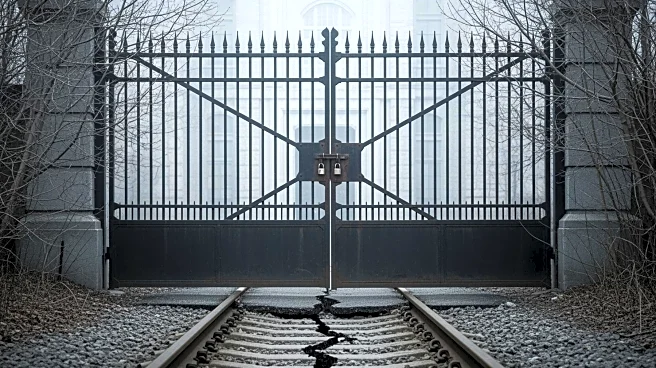What's Happening?
Poland has announced plans to shut down Russia's last consulate in the country after an explosion damaged a railway track used for deliveries to Ukraine. Polish authorities have accused two Ukrainians of carrying out the sabotage on behalf of Russia,
describing the incident as an act of state terror. The suspects reportedly fled to Belarus after the attack. In response to the sabotage, Poland's Foreign Minister Radek Sikorski has decided to close the Russian consulate in Gdansk, further straining diplomatic relations between the two countries. The Polish government is also deploying soldiers to protect critical infrastructure.
Why It's Important?
The closure of Russia's consulate in Poland signifies a further deterioration in diplomatic relations between the two nations, which could have broader implications for regional security and cooperation. The incident underscores ongoing tensions between Russia and European countries, particularly in the context of the Ukraine conflict. Poland's actions reflect a strong stance against perceived Russian aggression and could influence other European nations to adopt similar measures. The situation highlights the importance of safeguarding critical infrastructure and the potential for international collaboration to address security threats.
What's Next?
Poland's decision to close the consulate may prompt retaliatory actions from Russia, potentially affecting diplomatic and consular operations between the two countries. The deployment of Polish soldiers to protect infrastructure could lead to increased military presence and heightened security measures. The incident may also prompt discussions among European nations regarding collective security strategies and responses to Russian activities. Continued monitoring and investigation into the sabotage will be crucial to prevent future incidents and ensure regional stability.
Beyond the Headlines
The railway sabotage raises questions about the role of espionage and covert operations in international relations. It highlights the challenges of addressing state-sponsored terrorism and the need for robust intelligence and security measures. The incident also underscores the importance of international cooperation in combating threats to infrastructure and maintaining peace and stability in Europe.














